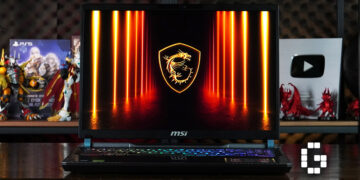This Article on Xbox on Southeast Asia was available earlier as part of the GamerBraves Newsletter. Sign up for free to gain access to more articles about news and trends in the gaming industry and community.
Microsoft has certainly been making waves in the video game world over the past year or so with the launch of the Xbox Series X, most notably the launch of the Xbox GamePass and the acquisition of Bethesda. The turnaround from being formerly perceived as the laughingstock of the big three console manufacturers in the previous generation certainly brought new respect for the Green Giant of consoles.
Despite this, in Southeast Asia, the sales of the Xbox Series X haven’t made too big of a dent. While we don’t have the exact numbers, figures from iPrice show that they pale in comparison to the PlayStation consoles, the Switch, and mobile gaming. Why is that though? A company as big as Microsoft should surely be able to make a bigger impact. Well, there are several reasons.

Lack of Retail Support
First, there’s the practical reason. The Xbox hasn’t even officially launched in Southeast Asia with Singapore being the only country in the region where Xbox consoles, games, and accessories are distributed (which had actually closed down but was re-open in preparation for the Series X). This means that retailers in other SEA countries must acquire the products by sourcing them through overseas wholesalers.
This not only makes acquiring Xbox products more cumbersome and expensive but it also means that the products will lack a fixed retail price or warranty. With the money required to import the Xbox, retailers may be incentivized to raise their prices.
By comparison, Sony has a Southeast Asia division and while Nintendo doesn’t, they do officially distribute their games through local company Maxsoft. This means it’s less expensive for retailers to sell PS or Switch products and it shows. Within Most local game stores here in Malaysia, you’ll see walls covered in PlayStation and Nintendo merchandise and maybe a sad stack of a few Xbox games in a corner somewhere.

Lack of Online Support
This lack of Southeast Asia support also applies to The Xbox Gamepass Subscription Service. If you want Gamepass, you have to have a credit card from a foreign country which many local gamers won’t have or won’t’ see the effort in getting. Considering that Gamepass is currently the Xbox’s biggest selling point, without it there is little incentive for people to turn to the console. Even if people want to play games on PC, which Gamepass is available on, they’re more likely to game over on Steam.
The Xbox’s Online in general has a problem with payment gateways. The rules and regulations for purchasing online goods differ between each country so that money can be safely transferred from the merchant to the bank. Since Xbox Live isn’t available in these areas, players can’t use their own currency, making digital goods widely unavailable.
This lack of service also extends to publishers as well. Third-party developers often rely on the console manufacturer to provide aspects like marketing. For example, Bandai Namco Entertainment in Southeast Asia may work with Playstation to advertise the latest major release like Tales of Arise locally. Developers however get zero support from Xbox due to it technically not being sold in the region.
Granted, a reason for only setting up a regional division in Singapore is likely because English is an official language of the country. Microsoft may consider it not worth the return investment to release the Xbox in other SouthEast Asian countries since they speak a multitude of different languages that would take time and resources to translate.
Although, with the exception of Thailand, Playstation gets around this by simply releasing most of its content in English. This is because many countries in Southeast Asia like Malaysia and The Philippines have fairly large markets that speak English as a second language. They also often release games with a Chinese language option due to the high Chinese diaspora in many Southeast Asian countries. Xbox could probably do the same.
Culturally Different
There are also cultural reasons as well. Southeast Asia’s gaming tastes tend to follow along with the more dominant trends in Japan and China, the big gaming powerhouses in the region. This means that popular games include JRPGs, Gacha games, and more niche anime visual novel hybrid games, a lot of which simply don’t appear on Xbox consoles in the same capacity they do on their competitors.

Games more Niche Japanese publishers like Atlus, NIS, Arc System Works, and Spike Chunsoft tend to stay on the local Japanese consoles. Even bigger companies like Square Enix and Capcom while having multiplatform games, have offered up more timed exclusives to Sony or Nintendo and have even produced games for both PlayStation and Switch that have skipped the Xbox like Ace Attorney Chronicles or Neo: The World Ends with You.
An old nickname for the console has been ‘The Halo Machine’ which has since established the Xbox’s reputation for western FPS and action games. Now, this isn’t to say that Halo or FPS games are unpopular in Asia, they very much are, however, this perception has led to the Xbox being perceived as not having a large enough market for these more Japanese-style games and lacking in variety compared to the competition. This has always been a large problem with the Xbox’s attempts to get into the Japanese and overall Asian markets.
Potential for change
There are signs that things might change for the Xbox brand. Earlier this year, Xbox Singapore changed its name to Xbox Southeast Asia. Unfortunately, an Xbox spokesperson later said that this was more to support their PC gaming business in the region than to release Xbox consoles or services.
In more a general sense Xbox seems to be trying to throw off the ‘Halo machine’ reputation with greater attempts to court Japanese developers with deals to get series like Yakuza and Final Fantasy on to Xbox Gamepass. Microsoft even made a deal with anime distributor Funimation (who are ironically owned by Sony) to get 2 months of free premium membership for Gamepass owners.
Not to mention, the Xbox Twitter account really likes tweeting about anime.
Yes, we’ve been hit by anime beams. pic.twitter.com/uZizaKUve8
— Xbox (@Xbox) September 30, 2020
But as previously said, these are more general strategies to change general worldwide audiences’ perception of the brand, not really directed specifically at the problems of Southeast Asia.
Xbox has a long way to go within the Southeast Asian region. Personally, I think if they put the time and resources into breaking into the market, they could find quite a lucrative audience. Many Southeast Asians really like the Netflix streaming model of only paying a small monthly fee for a wide selection of media. I could see Gamepass similarly taking off, however, this is only possible if it is available in countries outside of Singapore.









![[EXCLUSIVE] Creative Masterminds from Gearbox Software Reveal What Makes Borderlands 4 Worth the Wait](https://cdn.gamerbraves.com/2025/07/Borderlands-4-at-Bilibili-World-2025_Interview_FI-360x180.jpg)




![[ASIA EXCLUSIVE] Bringing Back a Classic: Inside the Making of FINAL FANTASY TACTICS – The Ivalice Chronicles](https://cdn.gamerbraves.com/2025/06/FFT-Ivalice-Chronicles_Interview_FI2-360x180.jpg)













